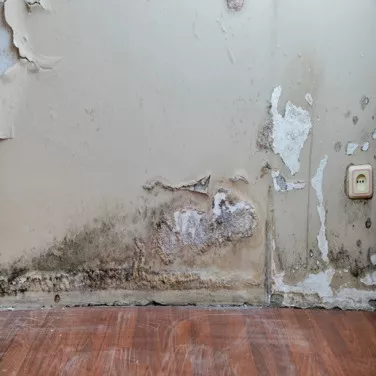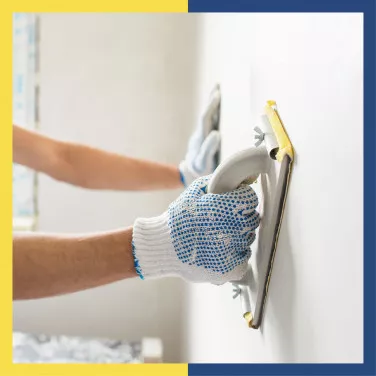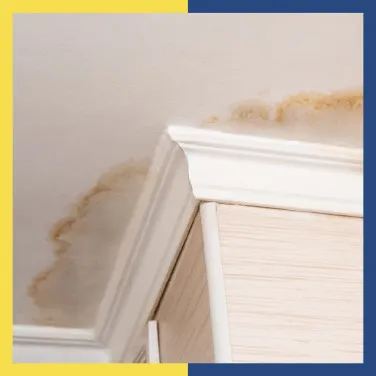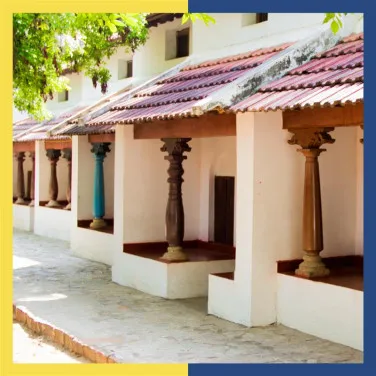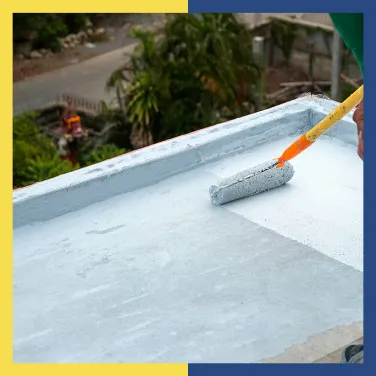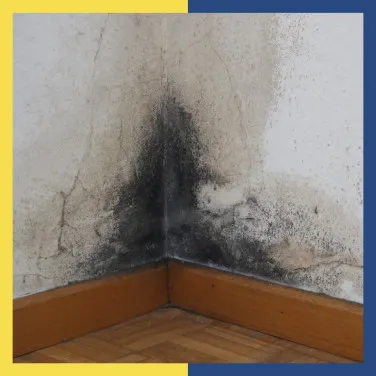Debunking liquid waterproofing: What it is and how it works
Liquid waterproofing offers seamless protection and durability, making it a superior choice over traditional waterproofing. Ideal for roofs, basements, and balconies, it provides a crack-bridging solution with minimal maintenance. Consult waterproofing contractors for expert services.
Are you considering waterproofing services for your home? Liquid waterproofing offers seamless protection that is cost-effective, long-lasting, and flexible. Unlike traditional waterproofing, which can be rigid and inconvenient in tight corners, this modern solution is more adaptable to such situations. Let’s explore whether it's right for you!
What is liquid waterproofing?
Various waterproofing methods involve using chemical admixtures before, during, and after constructing a structure. Liquid waterproofing is one such method, which is highly efficient, easy to work with, and has high water-repelling properties.
This method can be implemented using two techniques: applying a surface coat of waterproofing or mixing the waterproofing solution with concrete or other cementitious building materials.
Unlike traditional or ancient practices such as bituminous sheets or cementitious coatings, liquid waterproofing methods provide a continuous, crack-bridging solution that adapts to the structure's functionality and aesthetic, making it ideal for construction.
How does liquid waterproofing work?
The liquid waterproofing process involves using an admixture or adding a layer of coating made of polyurethane, acrylics, or bitumen-modified formulations. After the liquid cures, it forms a durable, elastic coating that repels water, allowing undersurface breathability. This effective workability and flexibility make it ideal for surfaces that experience movement, such as roofs and balconies.
Benefits of using liquid waterproofing
Some of the key benefits of liquid waterproofing that make it a preferred choice for construction and renovation projects include –
- Seamless protection –
Unlike traditional waterproofing systems, which have seams and joints, liquid waterproofing forms a continuous barrier, reducing the low-performance points where water can infiltrate.
- Flexibility and elasticity –
Depending on the type of surface waterproofing required, liquid waterproofing substances can fill and expand into cracks and provide a water-resistant barricade, making it ideal for surfaces prone to expansion and contraction.
- Ease of application –
It can be applied to irregularly shaped surfaces, corners, and hard-to-reach areas with ease, simplifying the application process and providing better protection.
- Lightweight solution –
Unlike sheet-based waterproofing, liquid waterproofing adds minimal weight to the structure, making it an excellent choice for sumps, planter boxes, roofs and balconies.
- Durability and longevity –
Depending on the formulation and application, liquid waterproofing can last 10-25 years with the right maintenance.
- Cost-effective over time –
While initial costs might be higher than some traditional methods, liquid waterproofing reduces long-term repair and maintenance expenses.
Where can you use liquid waterproofing?
The primary advantage of using liquid waterproofing is its versatility. It works wonders in various applications, including –
- Roofs –
Whether flat or sloped, it provides unbeatable waterproofing protection.
- Balconies and terraces –
These areas experience the highest exposure to rain, and liquid waterproofing provides an economical solution to protect these areas against leakage and waterlogging issues.
- Basements and foundations –
Soil can hold moisture to various degrees. This can cause water to percolate into the reinforcement and the overall structure if small cracks exist. A liquid waterproofing layer provides a cost-effective solution to barricade against such issues.
- Bathrooms and kitchens –
These areas deal with constant exposure to water. Liquid waterproofing keeps such wet areas leak-free and protects substructures.
- Swimming pools and water tanks –
Liquid waterproofing in swimming pools and water tanks ensures water containment and chemical resistance.
Debunking common myths about liquid waterproofing
Despite its many advantages, homeowners and contractors still hold several misconceptions about liquid waterproofing. Here are some of the common myths debunked –
- Myth –
Traditional sheet waterproofing methods are more durable than liquid waterproofing methods.
- Fact –
Modern techniques and compositions used in liquid waterproofing formulations provide better durability, often surpassing traditional methods when implemented correctly.
- Myth –
The service and maintenance of liquid waterproofing, particularly in terms of reapplication, is tedious and uneconomical.
- Fact –
Using the right type of material or the appropriate composition of liquid waterproofing based on your home’s unique needs can lead to minimal maintenance of the applied surface for over a decade.
- Myth –
Liquid waterproofing methods are only used for roofs.
- Fact –
While these methods are popularly used for roofs, liquid waterproofing is highly effective for basements, washrooms or wet rooms, outer walls, and ceilings.
When should you use liquid waterproofing for your home?
Having the right waterproofing method depends on various factors, including the region being waterproofed, the type of structural member, the cost of waterproofing, the topography of the region, and ambient environmental conditions. Depending on what your waterproofing contractor suggests while keeping these parameters in mind, liquid waterproofing is an excellent option for scenarios that require ease of application, flexibility, and durability.
In fact, liquid waterproofing is particularly beneficial in scenarios like –
- Homes that experience humidity, fog, mist, or temperature fluctuations
- Regions of the house with complex shapes and corners where traditional waterproofing sheets are impractical
- Homes that require a rapid and efficient waterproofing solution with minimal downtime and cost
In conclusion
Liquid waterproofing can be a versatile and effective solution for various areas depending on your home's needs. Its ease of application and flexibility, combined with its durability and longevity, make it an excellent choice for homeowners.
It's always important to consult professional waterproofing contractors to choose the right solutions for your home. To find out more about effective liquid waterproofing materials and methods for your home, get in touch with Dr. Fixit by filling out the form given below.
Get Professional Waterproofing Solutions Today
Fill The Form below to took free site evaluation by Dr. fixit point safe painting service expert
Get Professional Waterproofing Solutions Today
Fill The Form below to took free site evaluation by Dr. fixit point safe painting service expert











